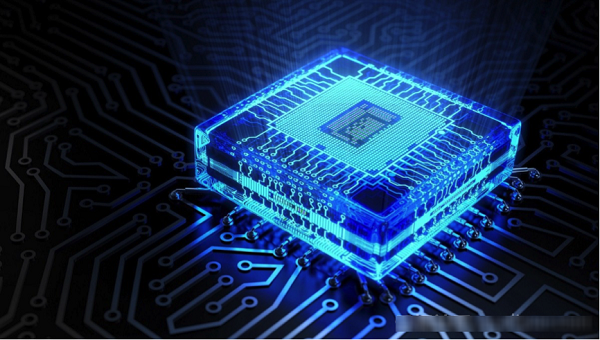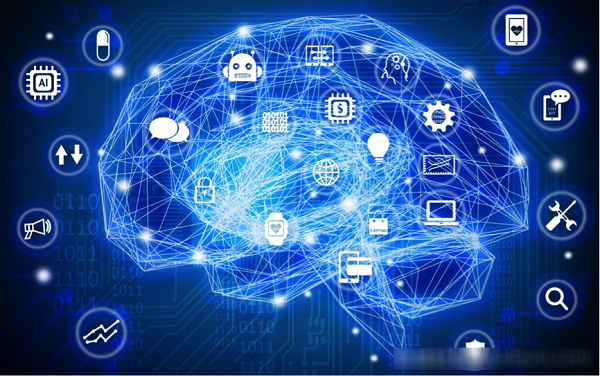In January 2019, Alibaba DAMO Academy announced its prediction of the top 10 technology trends in 2019, triggering wide discussions and enthusiasm for futuristic technologies. It also attracted worldwide attention from the academia. More than ten experts from authoritative academic institutions, including the Chinese Academy of Sciences, Tsinghua University, the University of Florida, and Duke University, commented on views proposed by DAMO Academy. They fully affirmed DAMO Academy's continuous devotion to basic science research.
The experts generally believe that although the DAMO Academy announced ten trends, they can be summarized into three key themes—computing capacity powered by chips, algorithms represented by graph computing, and networking capability represented by 5G.
Computation in the traditional era has been developing within the framework of the von Neumann architecture. In recent years, artificial intelligence is challenging the von Neumann architecture, and Moore's Law is no longer effective. New chips and new computer architectures have become the focus of the entire industry. DAMO Academy believes that the computing architecture is being refactored, and chip-based heterogeneous computing architectures, such as FPGA and ASIC, are challenging the CPU-centric general-purpose computing architecture.
"The approach to solve all problems by increasing the performance of the general-purpose chips no longer works." Chen Tianshi, a researcher at the Institute of Computing Technology at the Chinese Academy of Sciences, commented that "Both academia and industry are paying attention to more specialized processor architectures, and are always looking forward to new architecture evolution caused by new devices."

According to Duke University associate professor and IEEE Fellow Chen Yiran, academia focuses on more revolutionary architectural studies, such as memory computing, non-von Neumann architecture, and neuromorphic computing. The University of Florida Distinguished Professor and IEEE Fellow Li Tao said the transformation of computing architecture will dominate and lead the continuous innovation and development in the ICT field. This will be the core competitiveness of the industry in the future.
At least in the field of artificial intelligence, GPU is undoubtedly the most sought-after chip for enterprises and developers. However, DAMO Academy believes that data transmission between computing and storage nodes has become a bottleneck in their data center's AI training scenario. The AI-specific chip will challenge the absolute dominance of GPU.
"For training scenarios, significant computation power is required, and the amount of data that needs to be stored and processed is much larger than that of common applications. Therefore, AI-specific computing architectures would be the best choice." Deputy Head of the Department of Micro-Nano Electronics at Tsinghua University Yin Shou agreed with DAMO Academy's view.
According to DAMO Academy's prediction, AI-specific chips will become a trend. At the 2018 Computing Conference in Hangzhou, Alibaba announced that the first AI chip AliNPU will be used in cloud data scenarios, such as urban brain and autopilot in 2019. Chen Tianshi pointed out that "AI chips can support visual, speech, and natural language processing flexibly and efficiently. Even conventional machine learning applications will play an important role in data center scenarios."
In 1950, the father of artificial intelligence, Alan Turing, developed the famous Turing test to test the artificial intelligence ability of a machine. If more than 30% of the evaluators cannot reliably tell a machine from a human, the machine is said to have passed the test.
Turing's proposition that "machines can think" may be realized soon. DAMO Academy believes that in the future, humans may not be able to differentiate voices generated by AI from human voices. Public facilities with voice interaction capabilities will be more and more widely seen. In certain conversation tests, machines can pass the Turing test.
Professor at the School of Computer Science of Northwestern Polytechnical University Xie Lei Said, "Sound synthesis technology can already rival human voices in some respects, and will lead to the boom of the 'ear economy'. Various AI voice actors and actresses may provide us with auditory sensation."
Rapid development of the artificial intelligence industry is highly correlated with the breakthroughs made by deep learning. However, it is still difficult to achieve artificial general intelligence (AGI) through deep learning. DAMO Academy believes that the deep learning-based graph neural networks (GNN) will make AIs with common sense, understanding, and cognitive ability.

Tenured Professor at the Duke University School of Statistics David Dunson commented, "The statistical deep learning computation method will boost revolutionary improvements to the recommendation system, pushing more interesting and appropriate products to users, while at the same time improving the overall user experience."
Over the past two years, the term urban brain has been quite popular in China. DAMO Academy believes that in 2019, artificial intelligence will play a greater role in the development of urban brain technology and applications. More and more cities will have brains in the future.
Dean of the China Urban Planning and Design Institute, Yang Baojun, believes that "The urban brain is no longer the wisdom of a single field or a single element, but the wisdom of global coordination and multi-source integration." Director of the Intelligent Transportation System Research Center of Tongji University Yang Xiaoguang said that "The next-generation urban intelligent management, intelligent services and intelligent decision-making will help humans prevent and comprehensively manage urban diseases."
Over the past few years, the popularity of 5G even rivals artificial intelligence. 5G technology builds a network that connects not only people, but also various things.
As mentioned by DAMO Academy in their prediction of the top 10 technology trends, 5G will drive ultra-HD videos, and AR/VR technologies to maturity. Deputy Chief Engineer at China Academy of Information and Communications Technology and Secretary General of the Expert Committee for Information and Communication Economy of the Ministry of Industry and Information Technology, Chen Jinqiao, commented that "5G will lift the curtain for the process of turning data resources to productivity. A high-speed ubiquitous network-based intelligent society will come into being."

Vehicle-road coordination will be a typical scenario where 5G and artificial intelligence technologies embrace each other. DAMO Academy believes that the vehicle-road coordination will speed up the maturity of self-driving vehicles, which will quickly be implemented in commercial scenarios such as fixed-line buses, unmanned distribution, and micro-commuters in parks.
There are many limitations for the vehicle revolution when simply relying on "vehicle intelligence". For example, high deployment costs for sensors and low reliability of the sensing and decision making systems. "The advantages of vehicle-road coordination are that it reduces the deployment costs of the location system for each vehicle, and enables better sensing and decision making." Researcher at the Institute of Automation of the Chinese Academy of Sciences, Zhao Dongbin said.

2,599 posts | 764 followers
FollowAlibaba Clouder - July 22, 2020
Alibaba Clouder - April 29, 2020
Alibaba Clouder - June 30, 2021
Alibaba Clouder - October 10, 2020
Alibaba Cloud Community - December 7, 2023
Alibaba Clouder - January 8, 2019

2,599 posts | 764 followers
Follow MaxCompute
MaxCompute
Conduct large-scale data warehousing with MaxCompute
Learn More CEN
CEN
A global network for rapidly building a distributed business system and hybrid cloud to help users create a network with enterprise level-scalability and the communication capabilities of a cloud network
Learn More Platform For AI
Platform For AI
A platform that provides enterprise-level data modeling services based on machine learning algorithms to quickly meet your needs for data-driven operations.
Learn MoreMore Posts by Alibaba Clouder